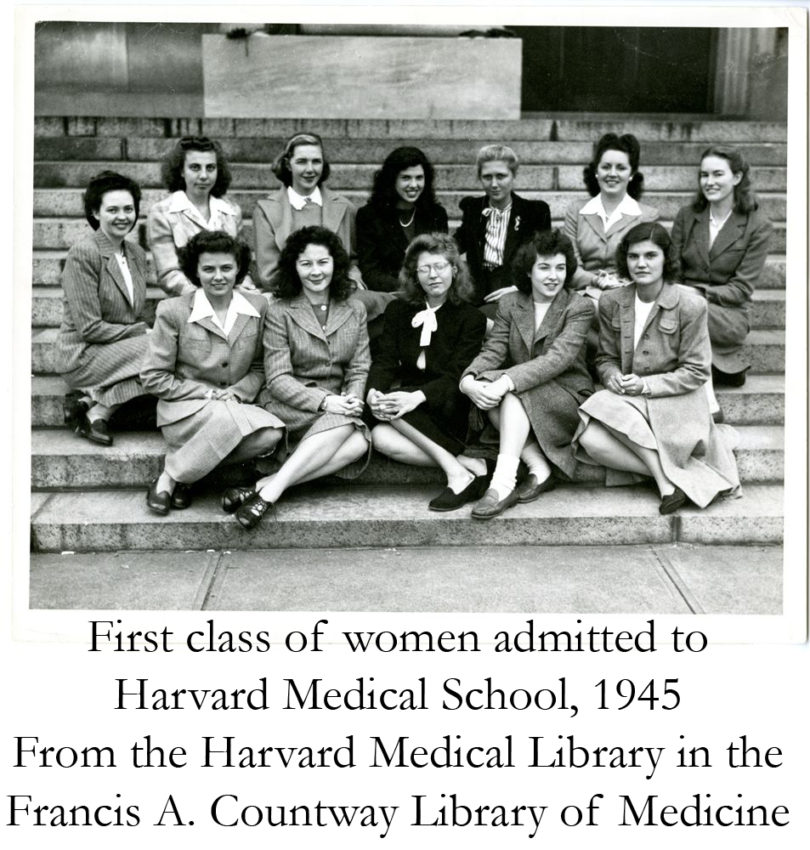
Female Physicians Who Changed History
Posted By admin / 6th Feb, 2018
Unlike in earlier generations, women now represent nearly a third of practicing physicians, but women’s inclusion in medicine has been hard won by the many female pioneers who paved the way for equal opportunity and representation in the medical field. Along the way, these determined women changed history, not only altering the ways medicine was practiced, but effecting a revolution in attitudes about gender.
Dr. Elizabeth Blackwell (1821-1910)
In 1849, undaunted by the rejection of dozens of medical schools on the sole basis of her sex, Blackwell continued to study medicine independently and submit numerous applications until finally being admitted to the Geneva Medical School in New York (after the all-male student body, reportedly as a joke, voted to approve the admission of a woman).
Blackwell went on to become the first woman to earn a medical degree in the United States, and opened the New York Infirmary for Women and Children, providing care to the underserved while serving as an inspiring example to the generations of female physicians who would follow.
Dr. Mary Edwards Walker (1832-1919)
As the United States’ first female surgeon, Dr. Edwards Walker was a vociferous advocate for women’s health, dress reform, and suffrage who worked as a nurse, physician, and surgeon during the American Civil War. After crossing enemy lines to treat wounded civilians, she was captured by the Confederacy and arrested and imprisoned as a spy. For her heroic contributions during this period, she was awarded the Congressional Medal of Honor for her actions, making her the first woman to receive this distinction.
Dr. Gerty Cori (1896-1957)
In 1947, Gerty Cori, MD, became the first woman in the United States to earn a Nobel Prize in Physiology or Medicine for the “discovery of the course of the catalytic conversion of glycogen.”
Dr. Cori’s most notable work included research into biochemistry, metabolism, and physiology. Because she was awarded the Nobel Prize in conjunction with research conducted with her husband, Dr. Cori’s independent discoveries are sometimes overlooked. Among her most notable finding is her identification of the enzyme that initiates the decomposition of glycogen into glucose, leading to viable treatment options for diabetes.
Dr. Helen Flanders Dunbar (1902-1959)
Widely regarded as the “mother of holistic medicine,” Dunbar pioneered theories of psychobiology and psychosomatic medicine and was a prominent figure in the pastoral care movement.
A bona fide polymath, Dunbar mastered a wealth of disciplines, (such as psychiatry, psychology, obstetrics, mathematics, medicine, medieval literature, and theology) and held numerous positions at American educational and medical institutions. Her work on the relationship between psychosomatic disorders and “personality constellations” is still considered a classic in the field.
Dr. Elisabeth Kübler-Ross (1926-2004)
Probably the most well-known from this survey of female physicians, Kübler-Ross, MD, broke early and lasting ground in the study of death, dying, and grief.
Her now famous five phases through which a dying person passes (denial, anger, bargaining, depression, and acceptance) has helped millions of people better understand and make peace with the dying process. Transforming the discourse about death, her work radically changed medical practice with terminally ill patients.
Dr. Nancy Dickey
Nancy Dickey, MD, became the first female president of the American Medical Association in 1998 and is an active member of the American and Texas Academy of Family Physicians. The recipient of numerous prestigious awards, she holds six honorary doctorate degrees.
Discouraged as a child from a career in medicine, having been told it was “incompatible with family life,” Dickey nonetheless completed her medical degree. Practicing in family medicine at a time when only 10% of medical students were female (as compared to 50% today), her prolific career has included leadership, community action, teaching, and family. Serving as chair of the Board of Trustees and leading the AMA’s Council on Ethical and Judicial Affairs, she proposed a patient bill of rights that has been lauded as the gold standard of ethical care.
At Lifecycle Biotechnologies, in our role of providing leading-edge tools and services to the life science industry, we’re committed to supporting women in medicine and all fields of research, keeping up-to-date of the latest scientific discoveries and breakthroughs they make possible. In doing so, we aim to better understand and respond to the needs of the rapidly evolving industry and support our diverse customer population across multiple disciplinary specialties and market divisions.
If you’d like to see how our innovative tools and services can help your company scale for the research methodologies of the future, contact us today and see what we can do for you.


